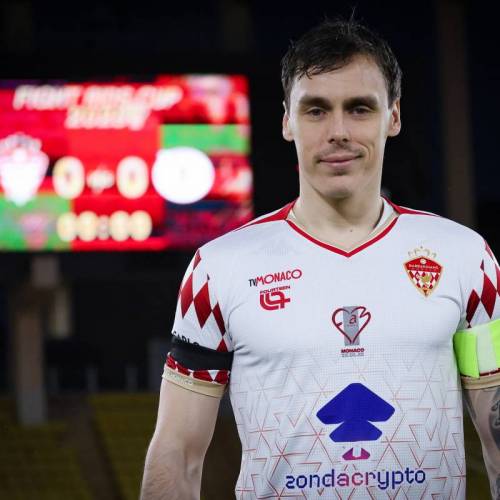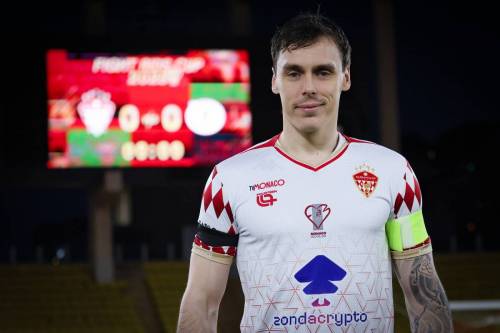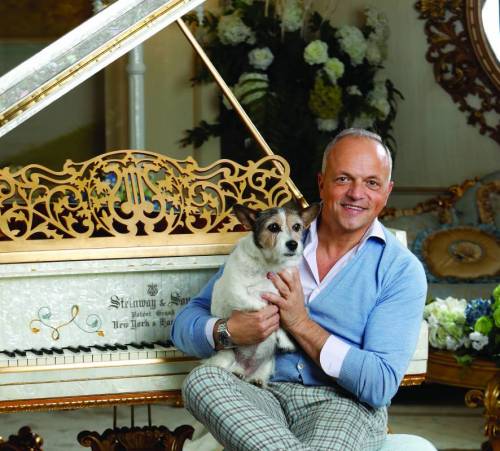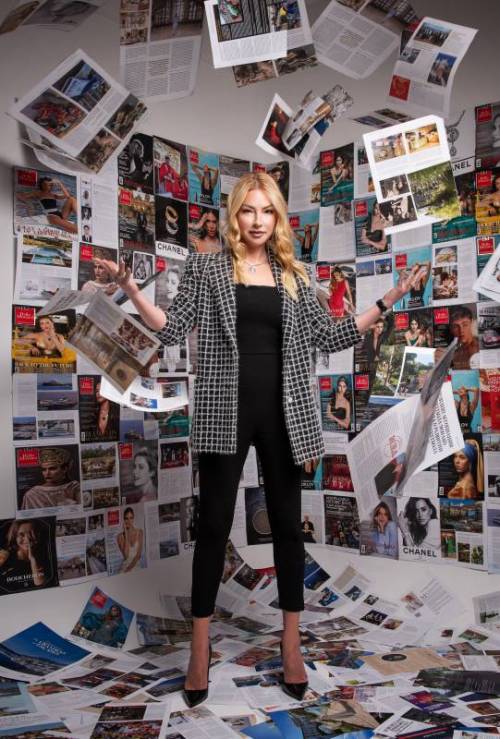Peace and Sport, the politically neutral organization dedicated to promoting sport as a tool for peace, has launched its 2017 #WhiteCard campaign, inviting the world to show its commitment to global peace efforts.
At an official event held in Monaco, Peace and Sport’s President and former Olympic medalist Joel Bouzou joined His Serene Highness Prince Albert II of Monaco, in calling for both athletes and citizens across the globe to participate in the annual #WhiteCard campaign. The initiative encourages people to take images of themselves holding up “white cards for peace” before posting them to social media.
The Minister of State for the Principality of Monaco, Serge Telle, was in attendance on the night, alongside many of Peace and Sport’s Champions for Peace – high level sportspeople committed to the peace through sport movement – including Paula Radcliffe, Pierre Frolla and retired French rugby union player Jean-Francois Tordo.
This year’s theme is entitled” Show us Where you Play your Peace”, and will encourage people to take pictures of themselves with white cards against iconic global backdrops, such as the Eiffel Tower, the Sydney Harbour Bridge or the Empire State Building.
The #WhiteCard campaign is anchored around the United Nation’s International Day of Sport for Development and Peace (IDSDP), celebrated on 6 April. The IDSDP celebrates the contribution of sport and physical activity to education, human development, healthy lifestyles and a peaceful world.
This launch begins a series of seven key Peace and Sport events taking place in different countries to highlight the work being done to promote peace through sport.

Peace and Sport Founder and President, Joel Bouzou, said:
“Our #WhiteCard campaign helps to spread our vision for a peaceful world across the globe, and this year promises to be no different. Year in, year out our Champions for Peace work tirelessly to promote our message, that sport can be a vehicle for change around the world.
“This year’s ‘Show us Where you Play your Peace’ will encourage people to share their location alongside their white card photos, emphasizing the global nature of sport and encouraging people from all races, nationalities and religions to share in our common goal of a peaceful society.”
H.S.H Prince Albert II of Monaco said:
“In my positions as Head of State, Olympian, IOC member and Patron of “Peace and Sport, I support this initiative. It highlights the values of our Principality in the promotion of sport as a tool for peace.”
Former Olympian and Peace and Sport Champion for Peace, Paula Radcliffe, added:
“Sport provides an environment for development and personal growth for all, regardless of background or circumstances.
“Through this campaign, I raise this #WhiteCard to help bring sport to wherever it can assist in bringing peace to the world. Together we can make a difference.”
Peace and Sport together with the Permanent Mission of Monaco in the United Nations will launch the International Day of Sport for Development and Peace on March 28th at the heart of the United Nations Headquarters in New York in cooperation with the International Fencing Federation, the International Table Tennis Federation and the World Taekwondo Federation.

HelloMonaco met with Peace and Sport’s President and former Olympic medalist Joel Bouzou who told us more about the main purpose and participants of the association of which Prince Albert II is the Patron and co-ideologist.
Was there any event in particular that inspired you to create the association?
To create an organization like this one, is a long undertaking. Sport inspired me so much that I had to do it. I’m not the only one who thinks this way, people at every level including the chief of state, Prince Albert II, is also inspired by sport. He knows how much this medium can bring to the table. Like today, the chief of state demonstrates that Monaco, although it’s a small state, is independent and at the same time it has the capacity to do something significant and contribute to the entire planet. And this contribution is to use sport to create political dialogue everywhere.
Monaco is small and we can talk to everyone easily. We also have credibility in the world of sport, with all the events we organize and with certain international federations which are based here. So the idea was not to organize more competitive sports events, but to use the rules and language of sport to create dialogue between divided communities. To use Monaco and the structure, theory and the best practical methods to put programs in place. Programs which explain what works to people who need it. How can we work on reducing conflict, tension between divided communities, for political or social reasons? For example, in the Great Lakes region in Africa, where borders of post-colonialism are tense, we can use sport to bring people together.

Sport permits people to concentrate and realize that we can talk to one another, we can live together. And at this moment, we begin to talk and live together. And finally, we can live in peace. That’s the objective. We aren’t the ones who create peace, but we manage to facilitate it, to relieve tension, so people can live together without borders and become constructive while keeping their identity and accepting their differences. The rules of sport are fabulous for that; it’s a universal language that we can speak, even if we don’t speak the same language, even if we don’t have the same culture, even if we don’t have the same religion. It’s global. We can even play sports with very simple tools. We can make Judo mats with old tires, we can create sporting equipment which allows us to put global solutions in place with almost nothing. This creates a lot of hope. The goal is to convince governments that sport is not a cost, it’s an investment. Certain investments are not necessarily expensive and can create adaptive solutions. And to convince sporting managers to become not only sporting managers but managers of peace through sport. That doesn’t cost any more. You only have to look at things from a different angle. When we put this all together, at an international forum, like the one in Monaco, we can advance our cause.
Was it difficult to get Prince Albert II on board?
He was convinced since before the beginning. He is co-author of the organization. We spoke about these things a long time ago, even before Peace and Sport existed, because we know he has inner valor. Today, we have this beautiful organization, which doesn’t only work on sport, community and peace, but also participates in promoting the Principality, openness of spirit, which the Principality has, and we can promote this on an international level.

You have more than 80 athletes in your organization, did you invite them to participate?
We invite certain ones, and some join on their own accord, because they recognize their own values in the cause. They know very well what sport has brought them and they want to try to bring to others what they have received. So when they are able to reach populations of young people, etc, they put a bit of their energy and a bit of their time in the organization to advance things.
What was the most remarkable project of 2016 for you?
We had a fabulous action, a friendly game between Bugarama, Rwanda and the Democratic Republic of Congo. We also had a diplomatic operation through Taekwondo. It’s difficult for me to class the operations in order of importance. We had an operation with the International School Sport Federation, where thousands of young people applied. Every time, things progress, the success of our operations is something we couldn’t have imagined three or four years ago.
Will the tragic events in Nice, Paris and London affect the#WhiteCard campaign?
What we try to accomplish through sport, is influence the youth with positive models, constructed all over the country. Tolerance, while at the same time, respect for the rules, respect for work ethic. We cannot make a champion in five minutes, one has to work at it. So, there is a respect for hard work, when we respect a champion, we respect hard work. A champion is also someone who respects the rules, we cannot become a champion without respecting the rules. And when we respect the rules in sport, we can respect rules in society. When we are able to work together, we can function in society. When we are able to live as a team in sports, we are able to live as a team in a wider sphere, so this type of transferring counts for a lot and interests us a graeat deal. That is the reason we are all so motivated to continue.








